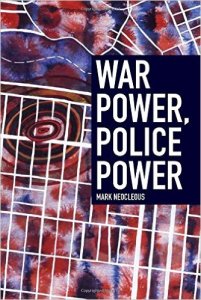Nathalie Weizmann discusses the intersections of law and geography in the U.S. War on Terror at Just Security. Of note to readers who may have had the opportunity to watch Mark Neocleus‘ presentation at last week’s “Reconfiguring Global Space: The Geography, Politics, and Ethics of Drone Warfare” in Bloomington, IN, is the emphasis placed here on the legality of doctrines of hot pursuit. As Neocleus noted in his talk, “Chasing Down the Bad Guys: Hot Pursuit and the Police of International Order,” drone warfare needs to be situated within a broader context of police power that is increasingly defined by a doctrine of hot pursuit. Through conflict ‘spillover,’ territorial distinctions are legally and spatially eroded in the U.S. War on Terror, calling into question the boundaries between war power and police power and the very meaning of sovereignty in the contemporary global order. For further reading on what Neocleus outlines as the historical continuities rather than distinctions between war power and police power, see his latest book by the same name: War Power, Police Power (2014). For a succinct look at the legal debates around transnational conflict in international and humanitarian law, check out Weizmann’s full article, “A Drone Strike and the Debate on the Geography of the War Against al-Qaeda and its Associates” at Just Security.
-
Subscribe
Subscribed
Already have a WordPress.com account? Log in now.
